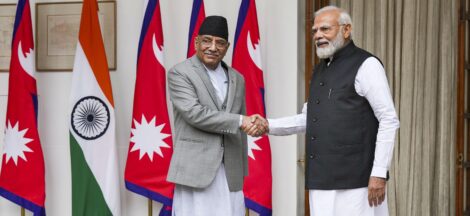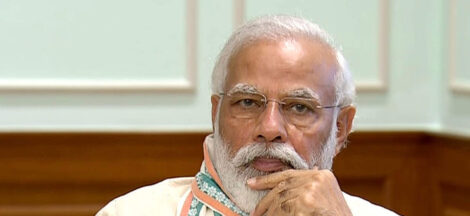By Ramachandra Kango
As the agrarian crisis intensifies, unemployment keeps growing and education, with privatization, goes out of the limits of common masses, there are communities that were once dominant in agriculture and in politics due to their numerical strength, have been engaged in agitation demanding “Reservation”.
Among these communities there were those that were included in OBC categories and got reservation due to Mandal Commission but then few communities like Jats, Patels in Gujarat and Marathas in Maharashtra etc. were not included in OBC categories and hence were denied “Reservation”. Why they were not included? No one wants to raise the question and is brushed under the carpet and all efforts are made to include them in OBC.
There comes the problem! In case of Tamil Nadu because of Constitutional amendments, reservation limit is 69 per cent. In all other states, the limit is 50 per cent because of Supreme Court decision. State of Maharashtra has already exceeded that and any attempt to increase it further would be challenged in the court and experts opine that a constitutional amendment is the only way out. But if such an amendment is made other castes in other states would also demand the same and hence government will have to think twice before doing so.
Another matter, peculiar to the state of Maharashtra is that a sizeable portion of community in Vidharbha is already included in OBC category under the name of “Kunabi”. If that portion is taken out from Maratha community, what is the percentage left is the question raised by many.
Besides this, OBC communities in the state have opposed the inclusion of Maratha community under OBC category. This is a political question as in the state Shiv Sena and BJP enjoy a strong OBC support and to alienate them would be a problem for the government.
Similarly it is a genuine concern that if a majority and dominant community like Marathas is included in OBC categories, they are likely to corner all benefits creating new problem. Hence a different quota structure is proposed for them.
Previously the Congress-NCP government declared 16 per cent additional quota for Maratha community and 5 per cent for Muslim community which was scrapped by the court. Earlier three commissions appointed by the state government have rejected Maratha community as a backward one.
Hence present government is in a dilemma. To circumvent this after the prolong agitation by Maratha community the present government had appointed a commission under a retired justice Gaikwad to study the economic and social condition of the Maratha community and it has submitted the report. The commission has studied 45,000 families from all over the state and has concluded that Marathas are socially, educationally and economically backward as it is claimed that 37.8 per cent families are below poverty line and have similarly highlighted educational backwardness and most being small marginal farmers.
No one has contested these findings but most political parties insist that the community should get reservation separately and not as a part of OBC! This is the problem which could be resolved only through constitutional amendments as opined by legal experts. Last government failed to do that and hence present government is planning to take a different route. Will it succeed is the question. Another question raised is that real culprit is “agrarian crisis”, and reservation cannot address this question. Similarly rising cost of education due to government’s emphasis on privatization of education or marketisation of education is also adversely affecting the predominantly agrarian community. Though as per the study, 54 per cent of educational institutions in the state belong to Maratha community, increasing government expenditure on education is the only way out and government is averse to this remedy. Similarly government is promising reservation in jobs but is reluctant to fill vacancies and is indulging in contractualisation or privatisation. This needs to be stopped and strong protest to fill vacancies and oppose contractual jobs is needed.
Reservation cannot be accepted without resolving the real issues and offering succor to the suffering masses. What is needed is real relief, and not a diversion from it. (IPA Service)
The post Maratha Reservation Has To Face Judicial Scrutiny appeared first on Newspack by India Press Agency.


